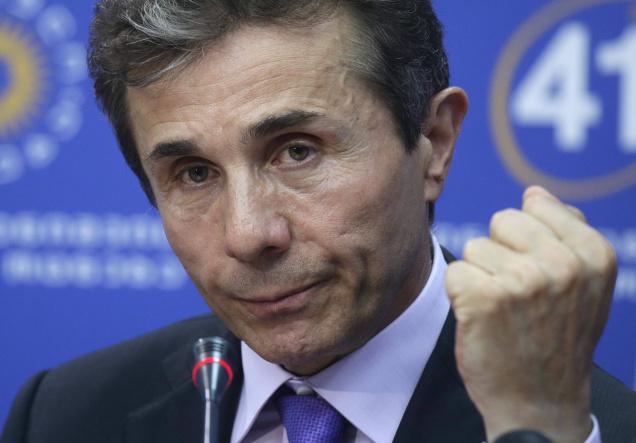
The Vote in Georgia: Why Saakashvili Lost, Why Ivanishvili Won, and What This Means for the Future
Publication: Eurasia Daily Monitor Volume: 9 Issue: 181
By:

The final results of the Georgian parliamentary elections were not announced yet when President Mikhail Saakashvili conceded that his party lost the majority of the vote; Bidzina Ivaanishvili has begun talks about forming a government and suggested that Saakashvili resign as president to preclude a “dual power” situation (Civil Georgia, October 2 and 3). Analysts around the world are speculating about what this change means, with suggestions ranging widely from the banal to the apocalyptic.
Before anyone is swept along by the most sweeping of these commentaries—forgetting that Saakashvili will remain president for another year and that the devil will be in the details of the new parliament—it is worth focusing on just why Saakashvili and his party lost, why Ivanishvili’s Georgian Dream won, and most importantly, why Ivanishvili’s victory represents a major step forward in the development of Georgian democracy and a change in tone but not in substance of Tbilisi’s approach to both Moscow and the West.
The reasons for the defeat of Saakashvili’s party are not far to seek. As summarized by Maksim Yusin of Moscow’s Kommersant, they include: first, the Georgian economy, despite Saakashvili’s reforms, is doing less well than advertised and has created a large class of losers as well as a smaller one of winners. The former had little reason to vote for his party.
Second, the Georgians are tired of Saakashvili personally. In their minds, he’s been in power too long, and he insisted on personalizing this race. His transparent attempt to remain in power by following Putin’s model of exchanging the presidency and prime minister-ship offended many, and the scandal about torture in prisons at the end of the campaign further underscored the dark underside of Georgian politics.
Third—and this is far and away the most important—Yusin notes that for the first time “Saakashvili lost the monopoly on patriotism.” The president’s declarations that all his opponents are Kremlin agents ready to trade Georgian independence and give up “the occupied territories,” no longer had the impact on the audience that they once had in Georgia and that they still have in many places in the West. Saakashvili played that card once too often and in ways that threatened the democratic changes with which he had been associated (https://www.kommersant.ru/doc/2035626).
The victory of Ivanishvili’s party reflects more than Saakashvili’s obvious shortcomings. It also is the product of the challenger’s skill and the highly effective campaign he ran. That campaign, and this has attracted less attention than it should, explicitly sought to restore “the bloom on the rose revolution” to create the conditions for Georgia to be a fully democratic state. Ivanishvili’s personal wealth, moreover, something Saakashvili sought to make an issue and even used as a justification for stripping Ivanishvili of his Georgian citizenship, did not play out the way the Georgian president hoped. Many Georgians, anecdotal evidence suggests, felt that Ivanishvili could not be corrupted precisely because he is so wealthy.
What will Saakashvili and the Georgian Dream do in office? Domestically, they will introduce corrections to Saakashvili’s untrammeled capitalism and provide a greater role for the Georgian Orthodox Church. Such shifts may lead some in the West to conclude that Georgia is about to slip backwards toward socialism. That seems highly unlikely. Instead, there is going to be a change in tone and style but not in substance, unless one is among those who see such shifts in tonality as inherently substantial.
Moreover, Ivanishvili’s victory—and it will be discussed in personal terms just as Saakashvili’s loss will be—in fact represents something extraordinarily important that the Western supporters of Georgia should understand and welcome: his rise and accession to office represent the first legal change of power in Georgia ever, an achievement that represents not only a triumph of democracy, but a victory for the principles that Saakashvili himself stood for when he sought to institutionalize the Rose Revolution (www.ng.ru/cis/2012-10-03/1_gruzia.html; echo.msk.ru/blog/nzlobin/936444-echo/).
And that in turn has important consequences for how the new Tbilisi government will deal with the West and with Moscow. With the West, an Ivanishvili government is almost certain to lower the temperature and become more predictable, but that does not mean it will become more distant. Instead, relations are likely to improve precisely because there will be fewer fireworks. With Moscow, the impact of new government is likely to be similar: Ivanishvili will change the tonality of relations—after all, he is not someone whom Vladimir Putin personally hates—and that may make progress in easing relations easier. Indeed, it may even make progress on Abkhazia and South Ossetia more possible, something the Abkhaz at least very much fear (www.regnum.ru/news/polit/1576717.html).
What the change in government will definitely not mean is a wholesale shift in Georgia’s relations with Russia. As Yusin points out, “Russian politicians must not have any illusions: no Georgian leader, unless he is a political kamikaze, will recognize the separation of Abkhazia and South Ossetia,” “break ties with the West,” or “return to Moscow’s orbit.” And that in turn may mean that Tbilisi may become a bigger problem for Moscow than it has been in the past: it will no longer serve as Putin’s bugaboo, but rather be a model of how citizens can change their government by democratic means. If Russians begin to view what has happened in Georgia with that in mind, the Georgian Dream could become a Russian one as well (echo.msk.ru/blog/oreh/936400-echo/).




